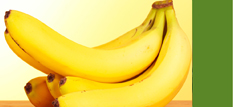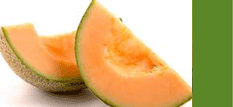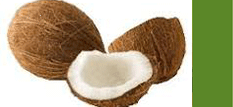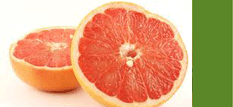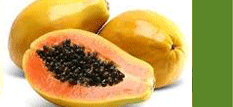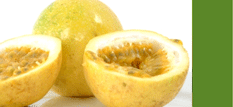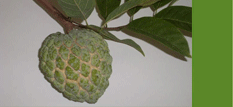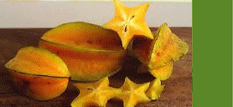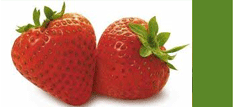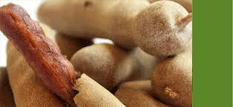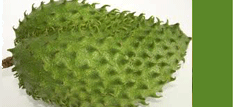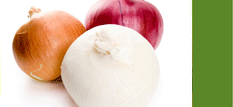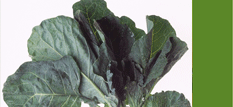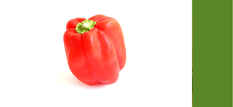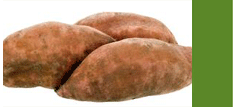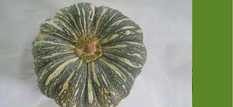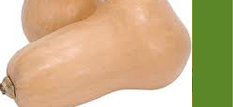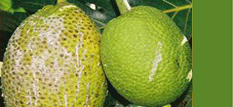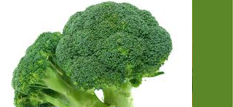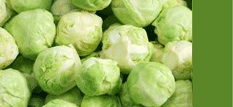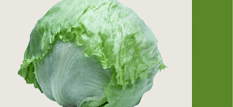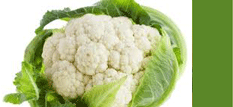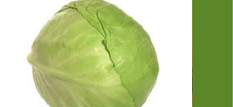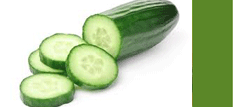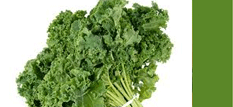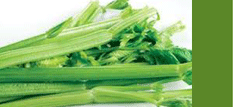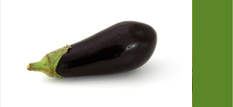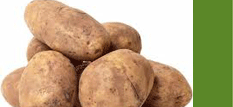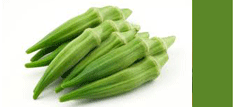Tips of the Day
Breast Cancer | Chronic Kidney Disease | Diabetes | HIV/AIDS
Chronic Kidney Disease Health Tips
Chronic Kidney Disease (CKD) — A Public Health Crisis
The World Health Organization reported that diabetes mellitus and hypertension are major causes of chronic kidney disease (CKD) and end-stage renal disease (ESRD). These two non-communicable diseases are responsible for 60% of deaths globally. Reports from the Caribbean Renal Registry (CRR) have also identified diabetes mellitus and hypertension as the leading causes of chronic kidney disease and end-stage renal failure in the Caribbean. Chronic non-communicable diseases, including chronic kidney disease, continue to be a major financial challenge in the Caribbean. Epidemiological data from the Caribbean Renal Registry (CRR) shows that increasing rates of CNCDs suggest that the expected numbers of patients with CKD and ESRD will continue to rise. This calls for immediate attention and reversing this trend.
Chronic Kidney Disease (CKD)
CKD means the kidneys are at least 40% less able to filter out wastes and water from the blood, and the damage is permanent. In time, CKD may lead to kidney failure, in which case dialysis (blood cleaning) or a kidney transplant is needed to support life. The two most common causes of CKD are type 2 diabetes and high blood pressure. If CKD is caught early, it may be possible to slow it down or even stop it.
Healthy kidneys remove wastes and fluid, help regulate the body's water and other chemicals in the blood, remove drugs and toxins, and release hormones to help regulate blood pressure, make red blood cells and promote strong bones. In people with CKD, the kidneys are less able to perform these vital functions that help maintain a person's overall health. People with CKD often develop complications such as high blood pressure, anemia, weak bones, malnutrition and nerve damage. People at increased risk for CKD include those with diabetes, high blood pressure, cardiovascular disease and a family history of kidney disease, as well as people over the age of 60. Kidney disease raises the risk of early death, heart attack, stroke, and high blood pressure.
Raising awareness of CKD
Chronic kidney disease is often silent until the late stages when it can be too late to head off kidney failure, thus leading an individual to face the prospect of dialysis or a kidney transplant. However, evidence indicates that if CKD is detected early, action may be taken to delay or prevent kidney failure. Unfortunately, there is a lack of awareness in the general public, and to some extent in the medical community, about the prevalence of CKD.
CHEF is hoping to change this mindset by raising public awareness of CKD through community outreach and education. There is a growing recognition in the kidney disease community that widespread testing could have a profound impact on the progression of CKD in the population. CHEF is focused on raising awareness about CKD in the Caribbean.
Kidney Disease and Your Heart: The Hidden Link
When you have kidney disease, it might not occur to you to have your heart checked out. Or, if you have heart disease, you might not think to have your kidneys tested. As it turns out, checking both your heart and your kidneys is a good idea if you have either kind of health problem.
Why? Because diseases that affect the kidneys can also damage your heart—and vice versa. In fact, many doctors think of the heart and kidneys as one interlinked body system rather than separate organ.
Having both heart and kidney disease can cause 20 times the risk of death from heart problems than either problem alone. In looking at more than 18,000 people, a decline in kidney function predicted a 62% higher risk of death from heart failure. Heart disease happens very early in the course of kidney disease—so even just a small decline in kidney function should trigger efforts to help protect your heart.
Your Heart and Kidneys Never Sleep
While you can take a break after a hard day, your heart can't. Its job is to pump oxygen-rich blood from your lungs to each cell in your body, minute after minute, day after day. If your heart beats at the average rate of about 75 times a minute, this means more than 39 million beats a year!
With each heartbeat, blood is pushed through your kidneys for filtering. Though your two kidneys are each just about the size of your closed fist, they process about 200 quarts of blood per day to make about two liters of urine. To do their work, your kidneys need a constant supply of blood at a normal pressure. Too little blood or too little pressure can cause acute, sudden kidney failure. Too much blood or too much pressure can lead to scarring that can cause chronic, permanent kidney disease.
The Low Side of High Blood Pressure
Healthy kidneys "work" with your heart to control your blood pressure. Any time your blood pressure falls, kidneys release the enzyme renin into your blood. Renin signals your liver to make the hormone angiotensin, which tells blood vessels to constrict–raising blood pressure. This renin-angiotensin system (RAS) acts on your heart and your kidneys. An overactive RAS can lead to kidney problems. Cells may grow too fast or too slowly, causing inflammation, hardening of the arteries, and blood clot.
High blood pressure can damage your heart and your kidneys. High blood pressure causes tiny tears in the flexible lining of your blood vessels. The scars that form make vessels walls stiff. When this happens, your heart has to work much harder to pump blood through the damaged vessels. These damaged vessels may not be able to deliver enough blood to organs so this can lead to both heart and kidney failure.
What's Blood got to do with it?
A number of health problems that involve your blood can harm both your heart and your kidneys. One is anemia—a shortage of oxygen–carrying red blood cells. Kidneys make erythropoietin (EPO), the hormone that tells your bone marrow to make red blood cells. As the kidneys fail, less EPO is made, so you make fewer red blood cells. With fewer red blood cells, your body does not get enough oxygen. Anemia can speed up the rate of kidney failure.
Other blood-related risk factors for heart and kidney problems include:
- High blood levels of cholesterol – a waxy fat that can clog your arteries and lead to blood clots that can damage your heart or kidneys
- Inflammation – your body's response to infection or other injury, which can cause swelling and damage in your blood vessels
- Blood vessel calcification – a build up of stone-like crystals that can occur when kidney disease throws off the balance of calcium and phosphorus in your blood
The human body is very complex, and doctors are actively studying even more reasons why the heart and kidneys affect each other.
What You Can Do
To help your kidneys and your heart work as well as possible, do what you can to keep the normal balance inside your body.
The main job of your kidneys is to maintain homeostasis—a constant environment inside your body. Kidneys have built in sensors. At any given moment, healthy kidneys ensure that blood levels of water, salts, and other key chemicals are in perfect balance. When they begin to fail, this very precise system starts to fall apart. While we may not yet know exactly why this affects the heart, we know that it does. Here are some things you can do:
- Control your blood pressure. Blood pressure pills, diet, and exercise can help reduce the stress on your blood vessels. This can help keep both your kidneys and your heart healthy. You may find that a low-salt diet can help make it easier to hit the blood pressure target your doctor gives you.
- Learn your glomerular filtration rate (GFR). Based on your age, race, sex, and blood level of creatinine (a waste removed by healthy kidneys), your GFR is an estimate of how well your kidneys work. GFR is used to put chronic kidney disease into one of five stages. Finding out that you have loss of kidney function can give you time to get treatment so to protect your kidneys and heart at the same time. In many cases when kidney disease is found early enough kidney failure can be delayed or prevented.
- Keep your phosphorus in line. If you have kidney disease, your doctor may prescribe phosphate binders for you to take with meals and snacks. These drugs attach to phosphorus molecules like magnets and pull them out of your body—so you can keep the right balance of calcium and phosphorus. Too much phosphorus can lead to high levels of calcium being deposited in soft tissues such as blood vessels. Taking binders can help keep this from happening.
- Ask your doctor to test you for anemia. Most people who have some level of kidney problem also have anemia, which can be found with a simple blood test. Sometimes the symptoms of anemia—feeling very tired, weak, or cold all the time; fuzzy thinking; pale skin, lips, gums, and nail beds, etc. These symptoms can come on so slowly that you don't really notice. If you have anemia, getting treatment can give you more energy and help your heart and kidneys.
Forewarned is Forearmed
Knowing that kidney disease and heart disease go hand–in–hand can help you know what to look for. You and your doctor can work together and take action to prevent health problems.
The good news is that both kidney disease and heart disease can be treated to help you stay healthy.
Diabetes, High Blood Pressure and Your Kidneys
Diabetes and high blood pressure increase your risk of kidney disease. People with diabetes are three times more likely to have high blood pressure than someone without diabetes. You can lower your risk for kidney disease by controlling your diabetes, blood pressure, and by maintaining a healthy lifestyle.
Diabetes
Diabetes damages the small blood vessels of the kidney which can lead to loss of function. These blood vessel changes can also affect the skin, nerves, muscles, intestines, and the heart.
Treatment should begin early and includes controlling diabetes to slow the advance to kidney failure:
- Maintain blood sugar and blood pressure within a healthy range
- Regular testing
- Microalbumin, protein found in the urine
- Glomerular filtration rate (GFR), a measure of kidney function
Questions to ask your doctor about diabetes:
- What should my blood sugar range be?
- What is my A1C?
- How often should I check my blood sugar?
- How can I help control my blood sugar?
- Should I see a diabetes specialist?
- Should I talk with a dietitian?
- Am I taking the right medicines for my diabetes?
- Should I have blood or urine tests to check kidney function?
High Blood Pressure
High blood pressure is the second leading cause of kidney disease in the U.S., leading to one fourth of the new cases. Uncontrolled or poorly controlled blood pressure can cause permanent damage to the blood vessels of the kidney, decreasing the ability to filter fluids and waste from the blood.
Early detection and treatment of even mild high blood pressure is important to slow the advance of kidney disease:
- Maintain blood pressure within a healthy range
- Use medicines such as ACE inhibitors and ARBS if ordered by doctor (not everyone can take these medicines)
Talk to your doctor about what your target blood pressure should be. Keeping your blood pressure within a healthy range will lower your risk for problems.
Questions to ask your doctor about high blood pressure:
- What is my blood pressure?
- What can I do to lower my blood pressure?
- Should I be on blood pressure medicine?
- Do I need a blood pressure monitor to check my blood pressure at home?
- How often should I check my blood pressure?
- Should I have blood or urine tests to check kidney function?
Kidney Function
Diabetes and high blood pressure are the two most common causes of kidney disease. Ask your doctor about your kidney function.
Questions to ask your doctor about high blood pressure:
- Am I at risk for kidney disease?
- What signs and symptoms are there for kidney damage?
- Are there blood or urine tests I should be having, and how often?
- Do I have kidney disease now?
- If so, what stage am I?
- How often will you track my glomerular filtration rate (GFR)?
- How will I know if my kidney function has changed?
- When should I see a kidney specialist?
Delaying Kidney Disease
If you have kidney disease there are ways to help keep your kidneys working well as long as they can. One of the most important things you can do is learn as much as you can and ask questions.
Questions to ask your doctor about delaying kidney disease:
- How can I protect my kidneys?
- What can I do to avoid or delay kidney disease?
- Are there medicines I should avoid?
- Are there medicines I should take to protect my kidneys?
- What changes should I make in my diet?
- How can I stop smoking?
- How often should I see my doctor?
- Should I see a kidney specialist?
How To Protect Your Kidneys
If you have type 2 diabetes, high blood pressure, or other risk factors, you are at a higher risk of having kidney problems in the future. The good news is, if you're at risk for kidney disease you can protect your kidneys.
The stages of CKD are:
- Stage 1 – Kidney damage (protein in the urine) and normal GFR (>90)
- Stage 2 – Kidney damage and mild drop in GFR (60-89)
- Stage 3 – Moderate drop in GFR (30-59)
- Stage 4 – Severe drop in GFR (15-29)
- Stage 5 – Kidney failure: dialysis or kidney transplant needed (GFR <15)
- Each stage is based on the percent that the kidneys can filter, or "glomerular filtration rate" (GFR). GFR is not a blood test; it's a formula used to figure out how well your kidneys are filtering your blood.
Checking Your Kidney Function
Since kidneys clean the blood and make urine, blood and urine tests are a good way to check whether the kidneys are doing their job. If your blood or urine has high levels of substances the kidneys should filter out, something may be wrong. Knowing the names of your tests and what the results mean is a way for you to track your kidney function and see how you are doing over time. The two most common kidney function tests are creatinine (blood) and albumin (urine).
Creatinine
Creatinine is a waste product that forms each time you move a muscle. Healthy kidneys remove creatinine from the blood. A blood test can check your level—the more creatinine in your blood, the less work your kidneys are doing.
Albumin (protein)
Protein is a large molecule that is too big to fit through healthy kidney filters. If protein leaks into your urine, you may have a kidney problem. You may be able to see if you have large amounts of protein leaking—your urine may be bubbly or foamy. Smaller amounts (microalbuminuria) can be found with a dipstick or other test. If you are at risk for CKD, ask your doctor to test your urine for protein.
Symptoms of CKD
Most people with early CKD don't have symptoms—or don't know that they have them. Knowing what to watch for can help you to alert your doctor. And, getting early treatment can help you feel your best and protect your kidneys.
Anemia
Red blood cells carry oxygen to all of the cells in your body. Anemia is a shortage of red blood cells that can start early in CKD. What do kidneys have to do with blood cells? Healthy kidneys make a hormone called erythropoietin (EPO) that tells your bone marrow to make red blood cells. As kidneys fail, they make less of the hormone.
With fewer red blood cells, you get tired much faster, even when you are doing routine tasks like climbing a flight of stairs or walking to the mailbox. Feeling very, very tired can be a symptom of anemia.
Other symptoms of anemia are:
- Muscle weakness
- Shortness of breath
- Pale skin, gums, and fingernail beds
- Feeling dizzy or lightheaded
- Feeling cold all the time (when other people are not)
- Fuzzy thinking (memory problems or trouble focusing)
- Erectile dysfunction in men
- Changed periods in women
- Pica (a desire to eat ice or non-food items, like ice, dirt, laundry starch, or clay)
Tell your doctor right away if you have any of these symptoms. Getting your anemia treated can also protect your heart.
Edema (Swelling)
Failing kidneys remove less water. The extra water can build up in the legs, ankles feet, face, and/or hands (edema). Some people have trouble catching their breath due to extra fluid in the lungs. (This may be mistaken for asthma). If you have high blood pressure, you may find that it is harder to control, even when you take your pills.
In early CKD, your doctor may suggest that you eat less salt in your diet and take drugs to help your kidneys remove more water (diuretics). These steps may help slow the rate of CKD and help your edema.
Changes in Urination
Kidneys make urine, and when the kidneys are failing the urine may change. Some changes in that may notice include:
- Urinating more often
- Not urinating as much
- Making more—or much less—urine than usual
- Getting up at night to urinate
- Foamy or bubbly urine
- Blood in the urine or very dark urine that looks like tea or cola
- Pressure when urinating or trouble getting a flow started
Uremia (Buildup of Toxins in the Body)
Kidneys remove wastes from the blood. When the kidneys fail, wastes build up in the body (uremia). Symptoms of uremia include:
- Skin rash
- Itching
- Nausea and vomiting
- Loss of appetite for meats (protein)
- Metallic taste in the mouth
- Bad "ammonia" breath
- Weight loss (from loss of appetite)
Phosphorus is a mineral that is found in many foods (especially meats, dairy, beans, nuts, and whole grains). When it builds up in the body, it can cause itching. Your doctor may prescribe drugs called phosphate binders and ask you to eat less phosphorus in your diet to help relieve your itching.
Back or Flank (Side) Pain
Some people with kidney problems have pain in the back or flank on the side of the affected kidney. Polycystic kidney disease can
also cause this type of pain.
Poor Growth (Children Only)
One of the early signs of CKD in children is poor growth.
To sum things up, most of these symptoms are not only found in CKD—they can occur with other health problems, too. A doctor is the best person to check out all of your symptoms and order tests to find out if CKD is the cause. If you are at high risk for CKD due to high blood pressure, diabetes, or a family history of CKD, the sooner you find out if you have a problem, the sooner you can take steps to treat it.
How to Protect Your Kidney Function
While most CKD can't be cured, you can often slow down the disease and feel better. You may never get to kidney failure. Even if you have an early stage of CKD, work with your doctor to decide how often to have your kidney function tested—every 3 months, 6 months, or 12 months? You can also follow these simple steps to protect your kidney function for as long as possible:
Reduce the Stress on Your Kidneys
Give your kidneys a bit of a break by using the tips below:
- Drink lots of water to flush out wastes. Drinking water also helps lower the chances of kidney stones and infections.
- Keep your blood pressure in the target range. Weight control, exercise, and drugs can control blood pressure—and prevent or slow the risk of kidney failure. Also, blood pressure drugs in the ACE-inhibitor and ARB class help slow down a loss of protein in the urine and protect the kidneys. Blood pressure puts a lot of stress on your kidneys. If you have high blood pressure and any other kidney problem, treating your blood pressure will help protect your kidneys.
- If you have diabetes, keep your blood sugar in the target range. Weight control, exercise, medication, and tight control of blood sugar can prevent or slow the risk of kidney failure.
- Have blockages (e.g., narrowed arteries) treated. Sometimes blockages can be opened to help save function in a blocked kidney. If you think you have a blockage, ask your doctor what can be done about it.
- Take steps to prevent kidney stones if you are prone to them.
- Take steps to prevent infections if you are prone to them.
- Check with your doctor to see if there is a special diet you should be on, such as low protein, low salt (sodium), and low phosphorus.
Avoid Known Kidney Toxins
Limit use of over–the–counter or prescription painkillers that contain ibuprofen (Advil®, Motrin®), naproxen (Aleve®), or acetaminophen (Tylenol®). These non–steroidal anti–inflammatory drugs (NSAIDS) cause blood vessels in the kidneys to shrink, so less blood flow comes through. If you take any of these drugs often, be sure to tell your doctor. Taking these drugs with caffeine can also further harm the kidneys. Drinking a large glass of water when you take an NSAID can help your kidneys flush the drug out.
- Know your own drug allergies. Sometimes taking a drug that you are allergic to can damage the kidneys.
- Ask about a drug's effects on the kidneys any time you take a new medication. Some antibiotics and chemotherapy drugs are known to be hard on the kidneys. If you know that your kidney function is less than normal, avoid these drugs if you can and see if your doctor can prescribe something else.
- Avoid X–ray dye tests or have your doctor take steps to protect your kidneys. Less toxic dye can be used (this costs more), the dye can be diluted, and it can be flushed out of your body with extra fluid. Some doctors prescribe a drug called Mucomyst® to help protect the kidneys from the dye.
- Get a throat culture if you have a sore throat—and treatment if it is caused by Strep bacteria.
- Avoid use of street drugs. If you use them, know that they can harm your health and seek help to stop. Be honest with your doctor about what you are using so he or she can help treat you.
- Quit smoking. In people with CKD, research has linked smoking to an increase in the amount of protein in the urine. In smokers with diabetes, kidney disease may progress twice as fast . Get help to quit smoking and prolong your kidney function.
Other steps you take do to keep your kidneys working well for as long as possible include:
Visit your doctor for check ups.
Take all drugs as prescribed—in the right amount, at the right time.
- Tell your doctor about any herbs, supplements, or over–the–counter drugs you take. Just because some products are sold without a doctor's prescription does not mean they are safe for people with less than normal kidney function.
- Follow any dietary limits as prescribed.
- Know your blood or urine test names and what the results mean.
Do Your Part
If you are at risk for kidney disease, there are many things you can do to help keep your kidneys working. With knowledge of the
signs and symptoms of CKD and early treatment you can protect your kidneys and live long and well with CKD.
Reasons to get screened for CKD:
- If you want to take an active part in your health care decisions.
- If you want to learn how your kidneys contribute to your overall health.
- If you want to learn how well your kidneys function or if you show signs of kidney impairment.
- If you have a family history of kidney disease.
- If you have diabetes.
- If you have high blood pressure, cholesterol or heart disease.
- If you are overweight or obese.
- If you are over age 60.
- If you smoke tobacco.
If you answered 'yes' to any of the above risk factors, CHEF encourages you to get screened for chronic kidney disease.
Source:
http://kidneytrust.org/




